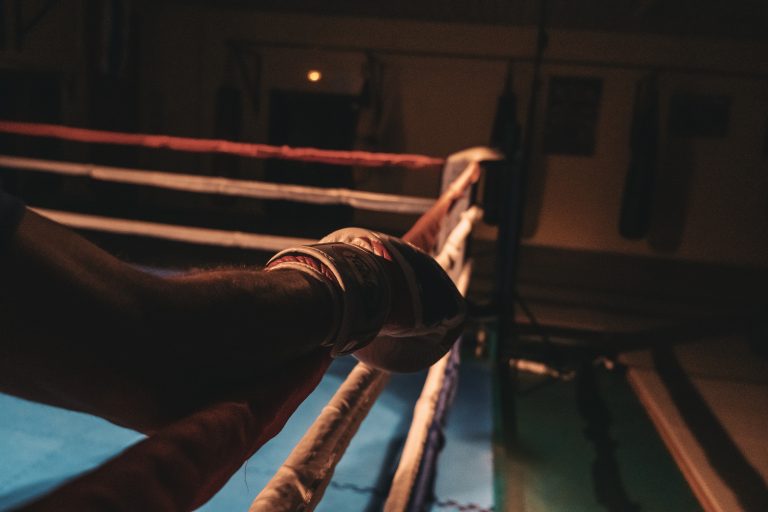How Protein Powder Takes Your Karate Training to the Next Level
Karate is a challenging and physically demanding martial art that requires a lot of strength, endurance, and agility. To improve your performance and achieve your goals, you need to fuel your body with the right nutrients, including protein. Protein is essential for building and repairing muscles, promoting recovery, and supporting overall health and wellness. In this blog post, we’ll explore how protein powder can help take your karate training to the next level and improve your results.
What is Protein Powder?
Protein powder is a dietary supplement that is made from various sources of protein, such as whey, casein, soy, and hemp. It comes in different forms, such as powders, shakes, bars, and capsules, and is widely used by athletes and fitness enthusiasts to support their training goals. Protein powder is an easy and convenient way to increase your protein intake and meet your daily requirements, especially if you have a busy lifestyle or don’t have time to prepare and cook protein-rich meals.
How Does Protein Powder Support Karate Training?
Protein powder can help support karate training in several ways:
– Builds Muscle Mass: Karate involves a lot of strength and power movements, such as punches, kicks, and blocks. These movements rely heavily on your muscle mass and strength. By consuming protein powder after your workouts, you can help your muscles recover and grow, leading to increased muscle mass and strength over time.
– Promotes Recovery: Karate training can be intense and sometimes lead to muscle soreness and fatigue. Protein powder can aid in recovery and reduce muscle damage, helping you feel better and perform better for your next training session.
– Enhances Performance: Protein powder can also enhance your performance by providing your body with the nutrients it needs to perform at its best. With an adequate protein intake, you can increase your endurance, agility, and speed, and reduce the risk of injury or illness.
– Supports Weight Loss: If your karate training is part of your weight loss journey, protein powder can also help support your goals. Protein is known for its satiety, which means it can keep you full for longer and reduce cravings and overeating. Additionally, protein can help preserve muscle mass while you’re losing fat, which can lead to better body composition and a leaner physique.
How to Use Protein Powder for Karate Training?
To reap the benefits of protein powder, it’s essential to use it correctly and in combination with a balanced diet and a regular training routine. Here are some tips on how to use protein powder for karate training:
– Choose high-quality protein powder made from a reliable and reputable manufacturer.
– Determine your protein needs based on your age, gender, weight, and training goals. Generally, athletes and active individuals need 1.2-2.0 grams of protein per kilogram of body weight per day.
– Consume protein powder within 30 minutes after your workouts when your muscles are most receptive to nutrients.
– Combine protein powder with other nutrient-dense foods, such as fruits, vegetables, grains, and healthy fats, to ensure a balanced and varied diet.
– Avoid relying solely on protein powder and neglecting other essential nutrients, such as carbohydrates, vitamins, and minerals.
Conclusion
Protein powder can be a valuable tool for karate athletes who want to take their training to the next level. By providing your body with the right amount of protein, you can support your muscle growth, recovery, performance, and weight loss goals. However, it’s crucial to use protein powder appropriately and in combination with a balanced diet and regular training to achieve optimal results.
How Protein Powder Takes Your Karate Training to the Next Level
Karate is known to be one of the most intense and challenging martial arts, requiring a significant amount of strength, endurance, and agility. As such, it is essential to have proper nutrition to maintain and improve performance levels. In recent years, protein powder has become incredibly popular among martial artists, fitness enthusiasts, and athletes. In this blog post, we will answer some of the most frequently asked questions about protein powder and how it can take your karate training to the next level.
What is Protein Powder?
Protein powder is a dietary supplement typically made from whey, casein, egg, soy, or other sources of protein. These proteins are typically processed into a powder form that can then be added to shakes, smoothies, or other food items to increase the protein content in a meal. Protein is essential for building and repairing muscles, and it is especially important for athletes and martial artists who put their bodies under high levels of stress.
What Are the Benefits of Protein Powder?
Protein powder has several benefits, especially for those engaged in high-intensity physical activity like karate. Some of the benefits of protein powder are:
1. Muscle growth and Repair:
As mentioned earlier, protein is necessary for muscle growth and repair, and protein powder is an excellent source of protein. Intense karate training can cause muscle breakdown, so consuming protein powder after training can help repair and rebuild muscles.
2. Increased Strength and Endurance:
Protein powder can also help increase strength and endurance levels. It provides the necessary nutrients to support muscle growth, which, in turn, can lead to increased strength and endurance.
3. Weight Management:
Protein powder can also aid in weight management. High-protein diets have been shown to reduce hunger and increase feelings of fullness, leading to weight loss over time.
4. Convenient and Easy to Use:
Protein powder is also very convenient and easy to use. It can be mixed into shakes, smoothies, yogurts, or other food items, making it a simple and quick way to increase protein intake.
When Should I Take Protein Powder?
The timing of protein consumption is crucial for maximizing its benefits. It is best to consume protein powder before and after your karate training sessions. Before training, protein powder will provide the necessary energy and nutrients required for the workout, while after training, it will help repair and rebuild muscles. Some people also use protein powder as a snack or meal replacement between meals to increase their daily protein intake.
How Much Protein Powder Should I Take?
The amount of protein powder you should take depends on your body weight, fitness goals, and dietary habits. A general guideline is to consume between 1-1.5 grams of protein per pound of body weight per day. However, consult a nutritionist, fitness trainer or physician to determine the appropriate amount of protein per day for you.
What Are the Different Types of Protein Powder?
There are several types of protein powder, including:
1. Whey Protein:
Whey protein is the most popular type of protein powder, and it is derived from milk. It is an excellent source of amino acids and is quickly digested by the body.
2. Casein Protein:
Casein protein is also derived from milk and is digested slowly. It is ideal for people who want a slow and steady release of protein over an extended period.
3. Soy Protein:
Soy protein is derived from soybeans and is an excellent alternative for people who are lactose intolerant or allergic to milk.
4. Pea Protein:
Pea protein is derived from yellow split peas and is an excellent source of protein for vegetarians and vegans.
5. Egg Protein:
Egg protein is derived from egg whites and is an excellent source of amino acids, particularly leucine. It is ideal for people who are allergic to milk or soy.
Are There Any Side Effects of Protein Powder?
While protein powder is generally safe to consume, there are a few potential side effects to keep in mind. These include:
1. Digestive Issues:
Some people may experience digestive issues, such as bloating, gas, or diarrhea, when consuming protein powder.
2. Dehydration:
High protein diets can cause dehydration, so it is essential to drink plenty of water when consuming protein powder.
3. Allergic Reactions:
Some people may be allergic to certain types of protein, such as whey or soy, which could cause allergic reactions like hives or swelling.
It is essential to consult a nutritionist, fitness trainer or physician before incorporating protein powder into your diet, especially if you have any pre-existing medical conditions.
Conclusion:
Protein powder is a valuable and essential tool for anyone engaged in high-intensity physical activity like karate. It aids in muscle growth and repair, increases strength and endurance, supports weight management, and is convenient and easy to use. However, as with any dietary supplement, it is essential to consult with a nutritionist, fitness trainer or physician before adding protein powder to your diet. With proper use, protein powder can take your karate training to the next level and help you achieve your fitness goals.
Inhaltsverzeichnis






